Contact center of the Ukrainian Judiciary 044 207-35-46
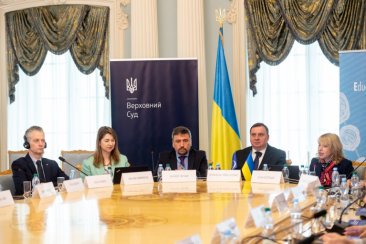
79 years ago on these days, a brutal war with millions of victims was coming to an end. After that, it took many years for us to see a restored Europe with a new political architecture and democratic institutions. It seemed that our generation should not have to experience the horrors of war, but unfortunately this catastrophe did not escape Ukraine. We regret to say that humanity has not invented a cure for war.
With the outbreak of full-scale Russian aggression, which resulted in the deaths of thousands of people and the destruction of numerous civilian infrastructure facilities, Ukraine faced the task of applying international humanitarian law.
This was stated by Stanislav Kravchenko, President of the Supreme Court, during a conference dedicated to the presentation of the course "International Humanitarian Law and Human Rights" developed by the Council of Europe project "HELP (Human Rights Education for Legal Professionals) for Ukraine including during wartime".
The SC President expressed his gratitude to the project for the development of this course, noting that Ukrainian judges are actively being trained on issues related to the specifics of the application of international law, not only deepening their knowledge but also sharing their own experience in dealing with war-related cases with the international community.
"Modern realities demand new approaches. The world must show intolerance to any manifestation of aggression and create an effective instrument to prevent it. Those occupying positions of authority who unleash war must be aware that they will inevitably be held to account for their actions. That is why, in April 2022, the President of Ukraine initiated the creation of a special international tribunal for the crime of russian aggression against Ukraine. I hope that its establishment will not only strengthen the norms of international humanitarian law, but also be a significant step towards creating a powerful deterrent mechanism to prevent wars," said Stanislav Kravchenko.
Christos Giakoumopoulos, Director General of the Council of Europe's Directorate General for Human Rights and the Rule of Law, said that the HELP project aims to support all Council of Europe member states in implementing the Convention for the Protection of Human Rights and Fundamental Freedoms and the Council of Europe's standards at national level.
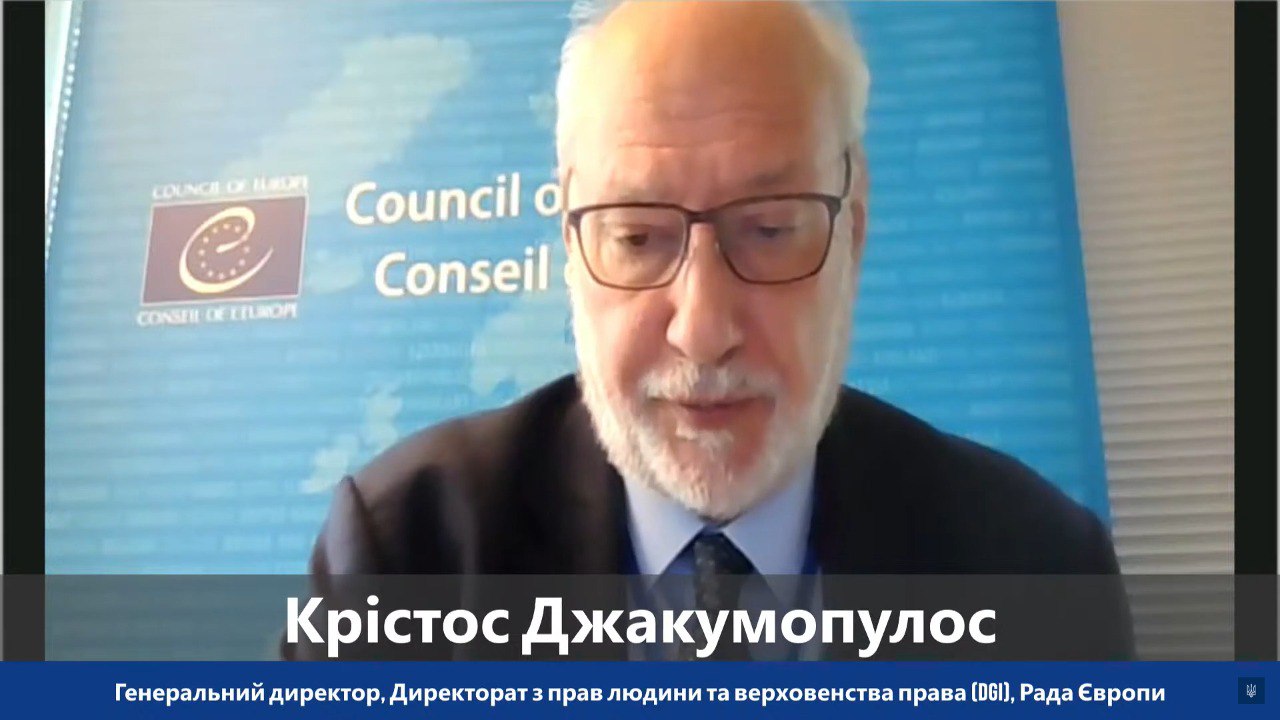
The courses developed by HELP offer flexible ways to acquire practical knowledge. Since the start of the full-scale war, the number of Ukrainians taking these courses has increased by almost 270%. This makes Ukraine one of the three most active participants in the courses.
"The new course is important for Ukraine because we see serious violations of international law by the aggressor state. Therefore, there is a clear need to train Ukrainian judges, prosecutors, investigators, lawyers, law enforcement officers, academics and students in the application of international humanitarian law in conjunction with human rights law," said Christos Giakoumopoulos.
Maciej Janczak, Head of the Council of Europe Office in Ukraine, stressed that the Council of Europe was one of the first to respond decisively to the violation of international law by the aggressor state and to develop an action plan for Ukraine aimed at supporting democracy and human rights in the war and post-war period.
Currently, the Office of the Council of Europe in Ukraine, in close cooperation with the Ukrainian authorities, is implementing some 30 projects that are essential for Ukraine's development as a modern, democratic state that respects the rule of law.
The implementation of the HELP project, according to the Head of the CoE Office in Ukraine, is a response to the current needs of Ukrainian lawyers and is driven by the need to improve their skills in international humanitarian law, which is the legal basis for assessing the situation in connection with the war.
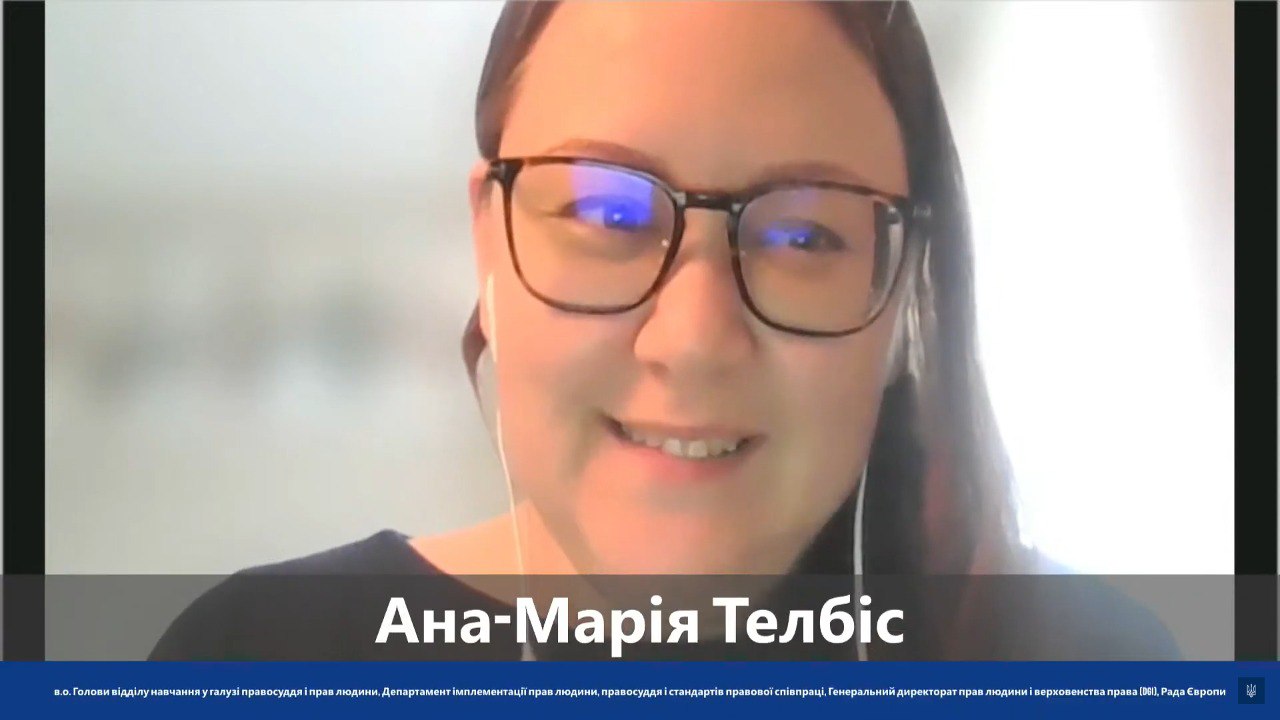
Ana-Maria Telbis, Acting Head of the Justice and Human Rights Training Division of the Department for the Implementation of Human Rights, Justice and Standards of Legal Cooperation of the Council of Europe's Directorate General for Human Rights and Rule of Law, pointed out that the Council of Europe had taken action to support Ukraine in exercising its right to defence from the very first days of the full-scale war.
In particular, the CoE has organised thematic seminars for Ukrainian lawyers, translated and launched training courses with topics relevant to Ukraine, and continues to develop courses tailored to its immediate needs.
Ana-Maria Telbis assured that the Council of Europe will continue to do everything within its mandate to help Ukrainian lawyers by equipping them with the necessary knowledge to fight for justice in the legal field, and thanked everyone for their efforts to ensure the successful and efficient implementation of the HELP project.
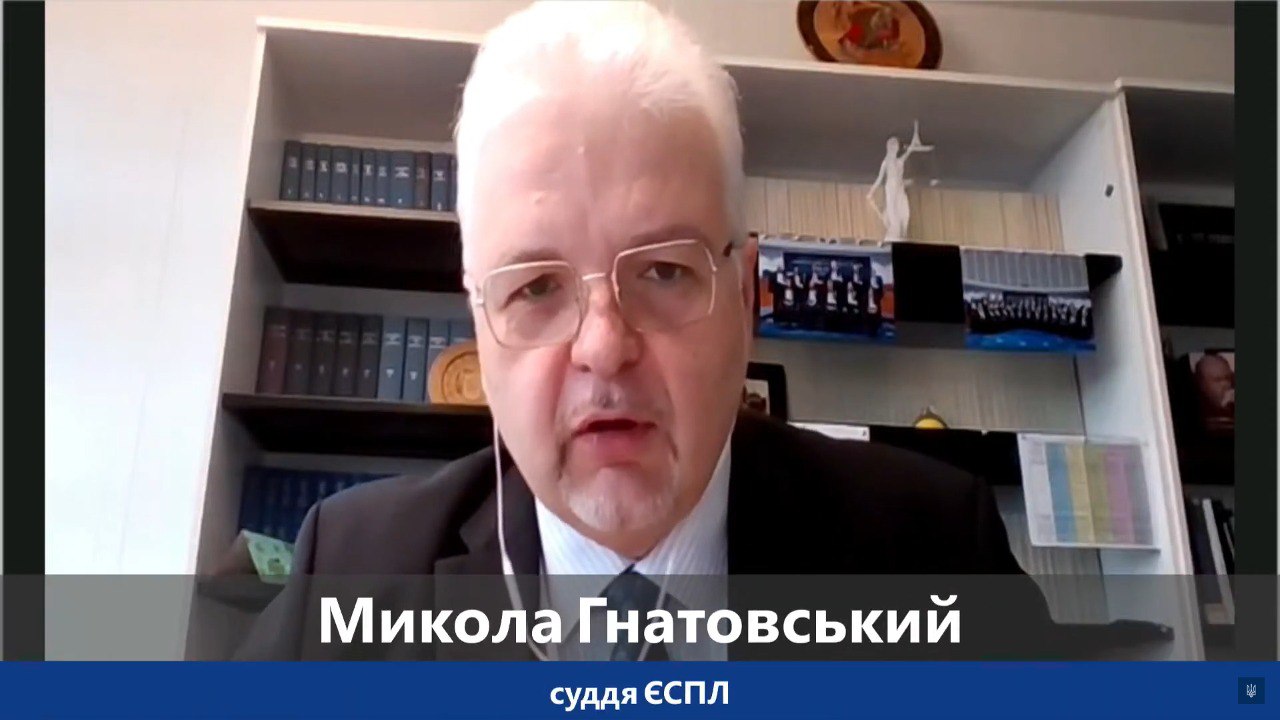
ECHR Judge Mykola Gnatovskyy focused on the current role of international humanitarian law and human rights in Ukraine and the world, and the interaction between international humanitarian law and international human rights law. According to him, with the beginning of the armed conflict unleashed by the russian federation against Ukraine, a situation has arisen in which, for the first time in history, a major war has begun within the area covered by European human rights standards, where not only international humanitarian law but also human rights law is fully applied. This is an unprecedented situation. Therefore, understanding how international humanitarian law in its many aspects interacts with the European human rights regime is an extremely difficult task.
"This is the task that the ECHR is currently addressing in the relevant cases and which is the focus of the HELP course on International Humanitarian Law and Human Rights. After all, we can't wait for the ECHR to dot the i's and cross the t's, we need to provide lawyers, experts, professionals in Ukraine and Europe with the tools to work with this material today," said Mykola Gnatovskyy.
.jpg)
Guislain Defurne, Deputy Head of Mission, Head of Operations of the International Committee of the Red Cross in Ukraine, devoted his speech to the relevance of international humanitarian law in Ukraine. He noted that the training course developed was an important tool for understanding international humanitarian law. Where this right does apply, sadly, there are unfortunate reasons - war. At the same time, international humanitarian law aims to mitigate the negative consequences of war, to protect people who are no longer involved in hostilities, and to impose restrictions on the rules of warfare. A proper and consistent understanding of the provisions of international humanitarian law is the basis for parties to a conflict to comply with their obligations. This is a prerequisite for ensuring humanity.
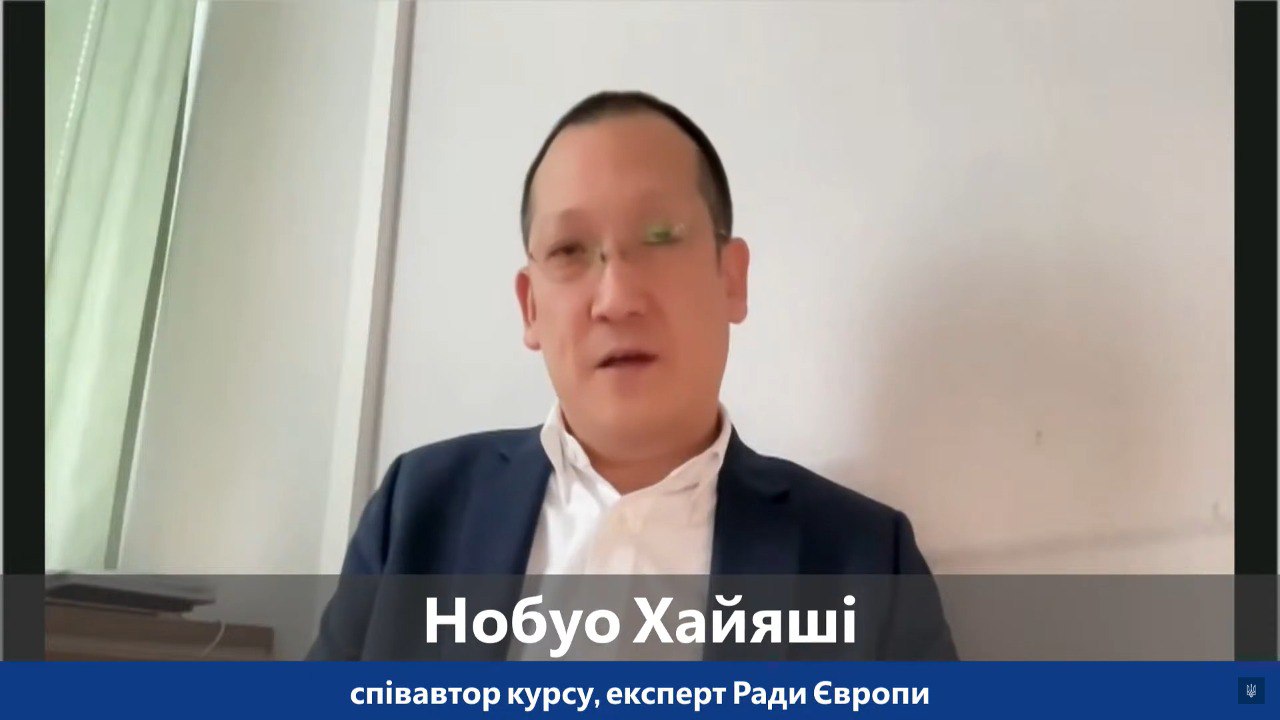 |
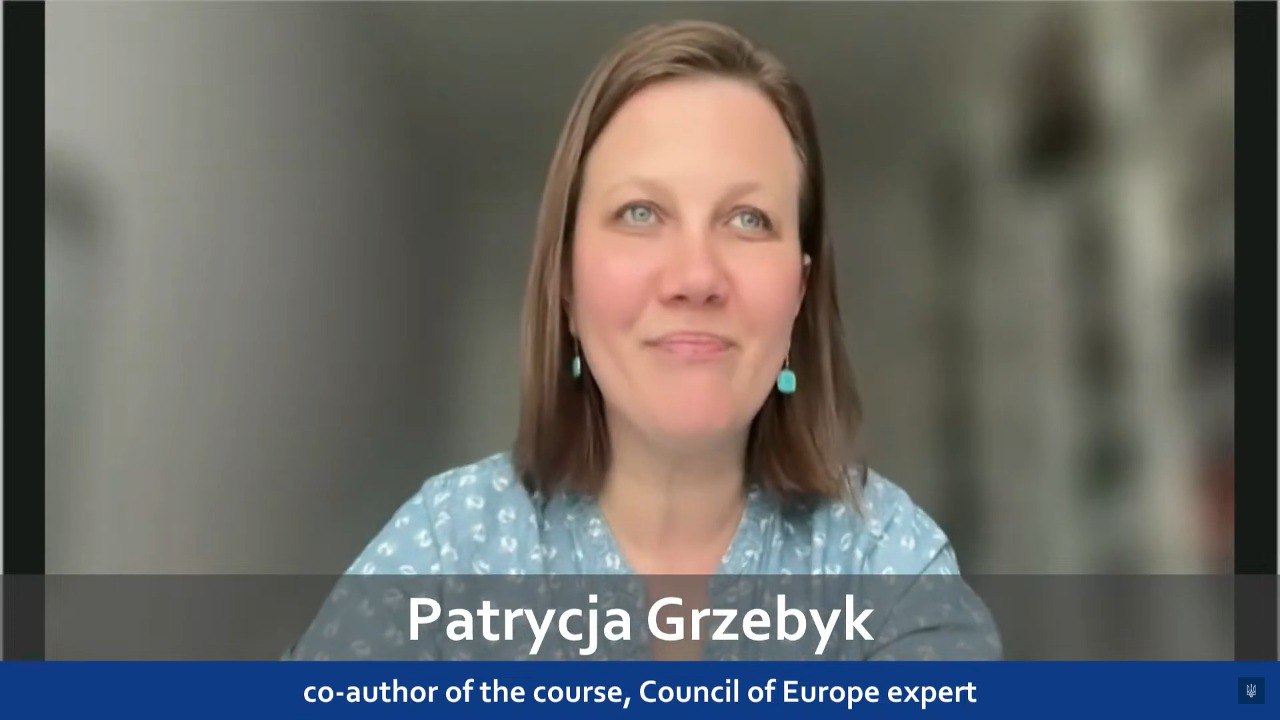 |
.jpg)
The co-authors of the HELP course "International Humanitarian Law and Human Rights", Council of Europe experts Nobuo Hayashi, Patrycja Grzebyk and Nataliia Handel spoke about the structure of the course and the basic principles and concepts of international humanitarian law set out in it. As explained by the speakers, the course covers 12 modules on the following topics: legal framework, scope of application, core principles, implementation and enforcement, interplay between IHL and international human rights law, right to life, prohibition of torture, right to liberty and security, right to a fair trial, protection of media actors during armed conflict, right to property, protection of people displaced during or fleeing armed conflict.
.jpg)
The First Deputy Chief of Staff of the Supreme Court, Rasim Babanly, who moderated the panel discussion on "The Role of International Humanitarian Law and Human Rights in Ukraine / Violations of International Humanitarian Law in Ukraine", noted that from the first days of the full-scale invasion and long before, Ukraine, as a victim of an aggressive war, declared its commitment to both the provisions, principles and rules of international humanitarian law and the Convention for the Protection of Human Rights and Fundamental Freedoms in legal relations arising from and related to the war. The moderator reminded the audience that, at the same time, Ukraine had been forced to withdraw from certain obligations under Article 15 of the Convention.
Rasim Babanly believes it is crucial to examine the relationship between international humanitarian law and human rights in Ukraine, as well as violations of IHL and the state's response to them. He also suggests that we consider the limits within which the rights of violators of universally recognised principles, laws, customs of war, and national legislation of Ukraine on its territory should be ensured. In addition, the question of how IHL and human rights law evolve in the light of the empirical basis that emerges in the context of a full-scale invasion is relevant for discussion.
.jpg)
Halyna Kret, a Supreme Court judge in the Criminal Cassation Court, stressed that the armed aggression of the russian federation against Ukraine, which began in 2014 and later escalated into a full-scale war, posed challenges to Ukrainian legal professionals in terms of familiarising themselves with international humanitarian law and international human rights law. And this process is accompanied by difficulties in the application of both substantive and procedural law.
The judge highlighted several key issues in war crimes trials, including the application of international legal acts and the qualification of crimes under IHL, as well as challenges in notifying accused persons in absentia and ensuring effective defence of such persons. Therefore, according to Halyna Kret, the informative and logically constructed course presented will certainly contribute to improving the quality of verdicts in criminal proceedings on war crimes and will be useful for investigators, prosecutors, lawyers and judges.
.jpg)
Yurii Bielousov, Head of the Department for Combating Crimes Committed in the Context of Armed Conflict, Prosecutor General's Office, spoke about how Ukraine, by actively involving other countries in the process of prosecuting war crimes, is changing traditional approaches to such prosecutions. As a consequence of this, Ukraine is, in a sense, extending the "umbrella of justice": currently, approximately 20 countries have initiated their own investigations, with the number of participating countries continuing to grow. According to the speaker, the greater the number of such countries, the better for Ukraine both politically (it confirms the fact of war crimes) and legally (since INTERPOL cannot be involved in the investigation of international crimes (in particular, it is about putting potential war criminals on the international wanted list), Ukraine seeks the support of other countries in this process through bilateral agreements).
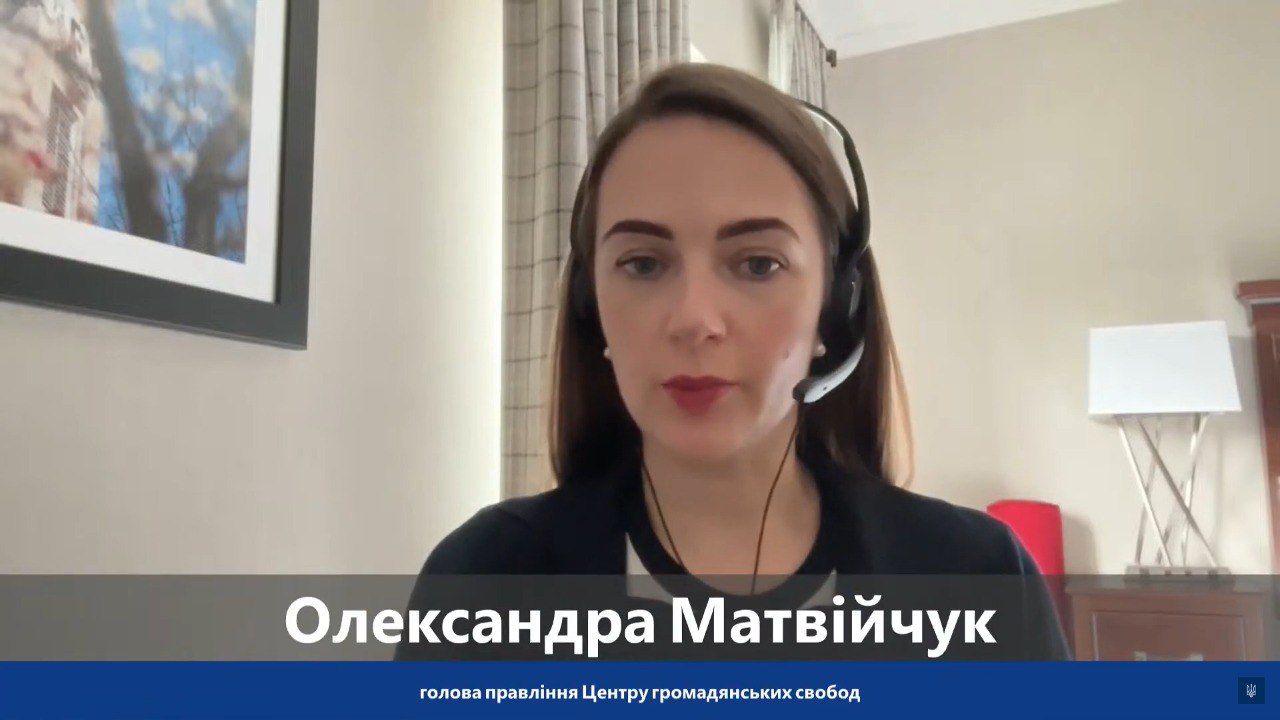
Oleksandra Matviichuk, Chair of the Board of the Centre for Civil Liberties, in her video address, said that russia was deliberately using war crimes as a method of warfare. In this regard, Ukraine and the world are faced with an accountability gap, as there is currently no international court that could bring the top leadership of the aggressor state to justice. According to Oleksandra Matviichuk, the establishment of a tribunal for the crime of russian aggression against Ukraine is a priority, as is the development of a strategy to ensure that all those affected by the war have a chance for justice.
.jpg)
During the panel discussion "Implementation of the HELP course "International Humanitarian Law and Human Rights" in Ukraine", Olesia Otradnova, Director of the Training Centre for Prosecutors of Ukraine, noted that from 2014 to 2022, a small number of prosecutors dealt with IHL issues, mostly representatives of the prosecutor's offices of Donetsk and Luhansk regions and the Autonomous Republic of Crimea. After the full-scale invasion, a large number of regions - such as Kyiv, Chernihiv, Sumy, Kharkiv, Zaporizhzhia, Mykolaiv, Kherson, and Dnipro - faced war crimes at once, and prosecutors had to quickly master IHL-related issues. According to the speaker, the highlight of the HELP course is the combination of two topics that all prosecutors deal with, so the Training Centre for Prosecutors of Ukraine will use it.

Iryna Hloviuk, senior researcher at the Department of Organisation of Scientific Work of the Lviv State University of Internal Affairs, member of the Scientific Consultative Council of the Supreme Court, stressed that the HELP course was very relevant as the issue of the correlation between international humanitarian law and international human rights law is complex both in scientific doctrine and in practice. She believes that this course will meet the demand of legal professionals, including lawyers, for information on internationally recognised, unified approaches to IHL.
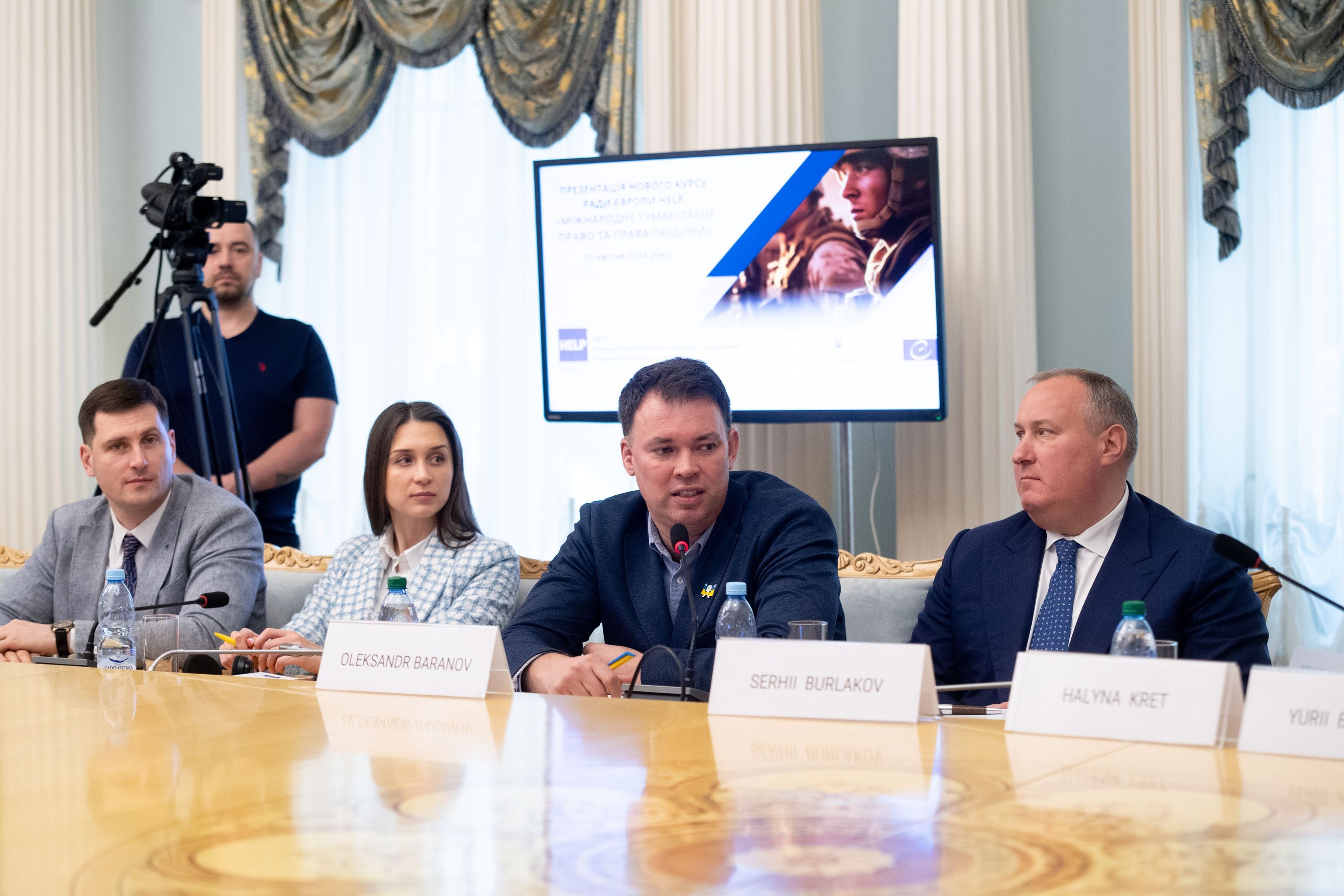
Oleksandr Baranov, Head of the Coordination Centre for Legal Aid Provision, stressed the importance of increasing the capacity of defence lawyers to provide an effective defence in war crimes cases. The HELP course is one of the ways in which lawyers can learn and deepen their knowledge of IHL in order to provide an effective defence and ensure the right to a fair trial.
.jpg)
Tamara Zakrevska, Deputy Head of the Department of Trainers (Lecturers) of the National School of Judges of Ukraine, noted that the course presented was unique in that it combined two important areas: international humanitarian law and international human rights law. According to the speaker, IHL is one of the key aspects of judicial training in the realities of martial law. She also noted that, with the support of USAID, a comprehensive training plan has been developed to improve the skills of judges in war crimes trials.
.jpg)
Kseniia Smyrnova, Vice-Rector for Scientific and Pedagogical Work (International Cooperation) at Taras Shevchenko National University of Kyiv, spoke about the experience of introducing courses from the Council of Europe's HELP (Human Rights Education for Lawyers) for Ukraine into the student curriculum, including during the war. She emphasised that this was an example of a harmonious combination of scientific, practical teaching with additional material on, for example, aspects of international humanitarian law, which had a positive impact on the training of future specialists.
The conference is jointly organised by the Council of Europe's project "HELP (Human Rights Education for Legal Professionals) for Ukraine including during wartime" and the Supreme Court.
The video of the event is available at https://www.youtube.com/watch?v=UKJcHv1ro3A.